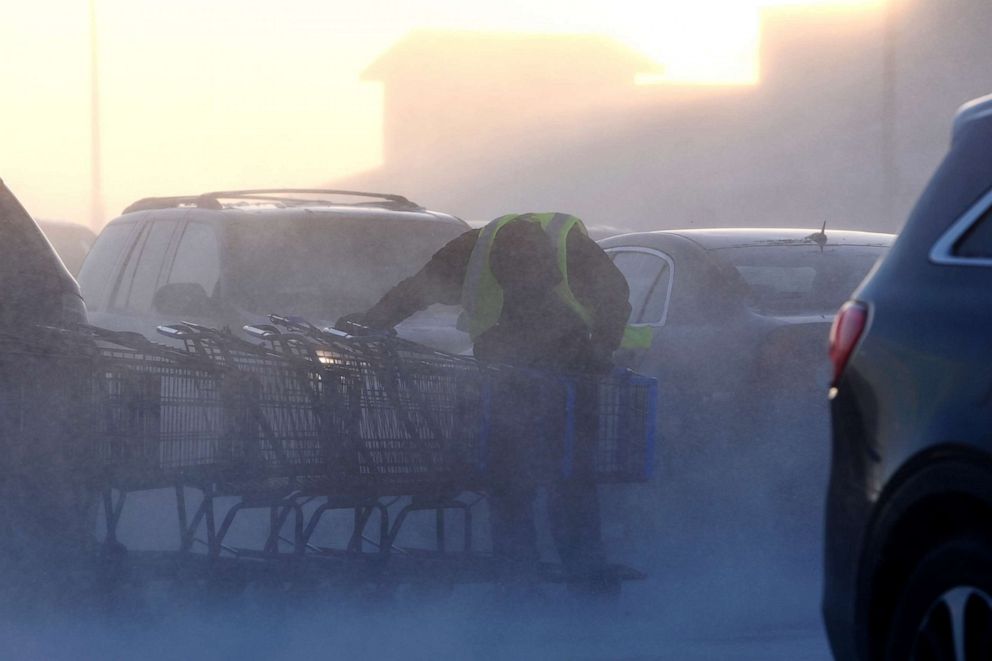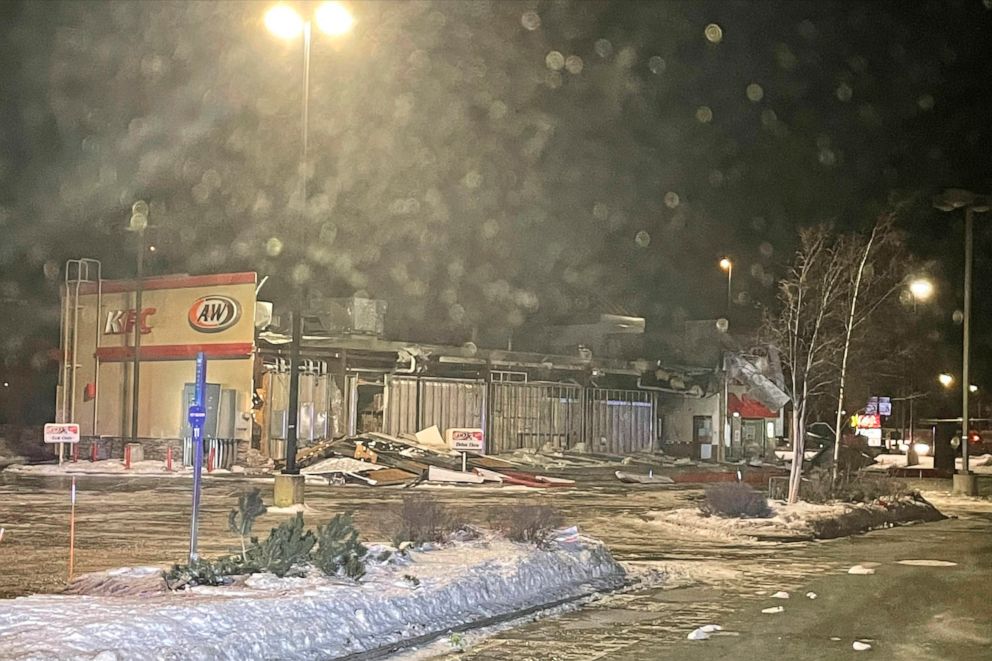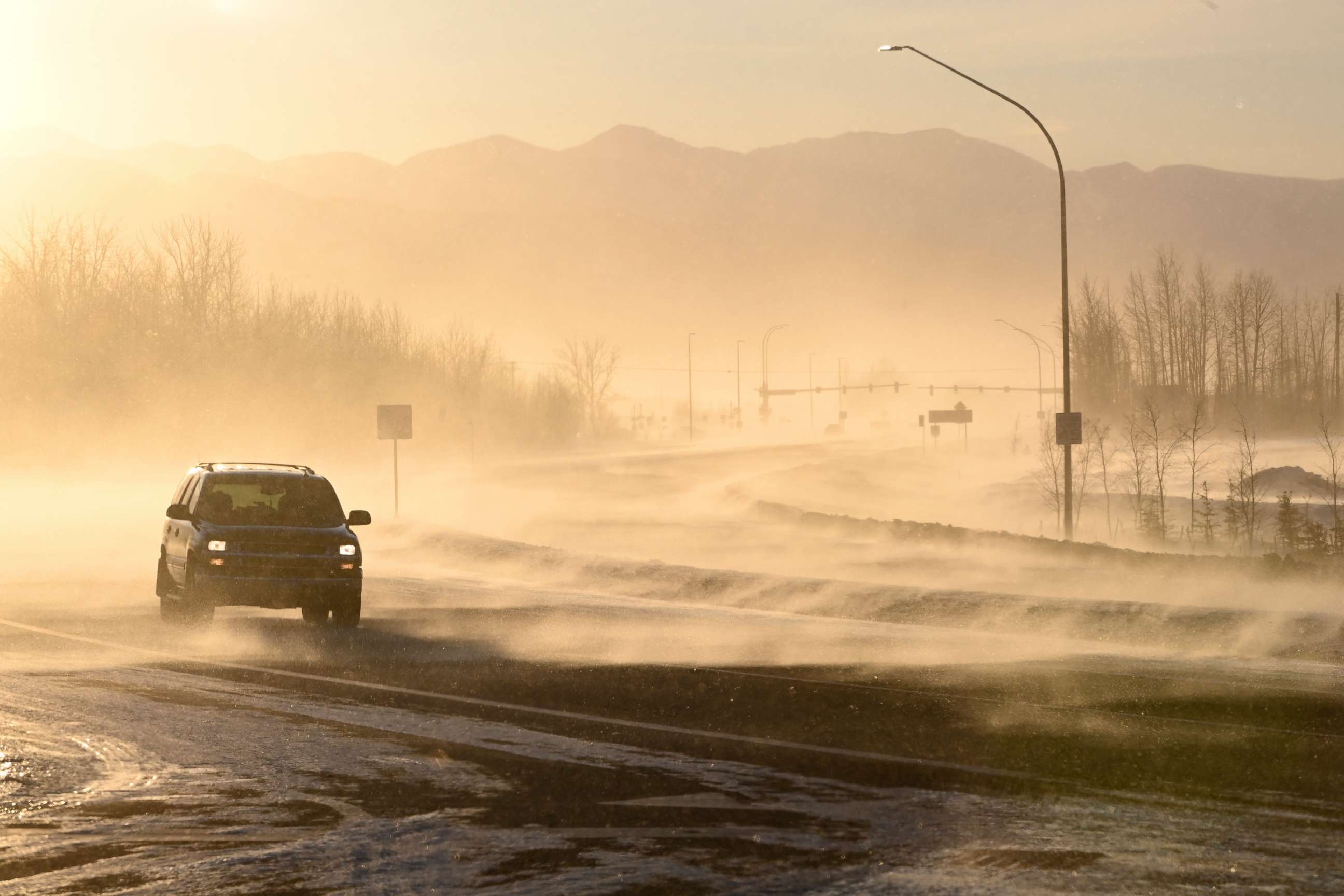Alaska windstorm leaves thousands without power amid below freezing temperatures
Winds up to 90 mph have left residents in danger of frostbite and hypothermia.
Thousands of homes in southcentral Alaska are without power amid below-freezing weather after a persistent windstorm with gusts up to 90 mph blew through the area over the weekend, taking down power lines, damaging buildings and flipping semitrucks and small aircraft.
Approximately 6,300 people in the Matanuska Susitna Valley -- a borough some 40 miles outside of Anchorage that encompasses Palmer, Wasilla and other smaller towns -- were without power as of Tuesday evening, according to the Matanuska Electric Association's outage map.
At one point, around 22,000 customers were without power -- "practically the entire Valley," an MEA Facebook post read.
The outages are especially dangerous as temperatures stay well below freezing in the area and a high wind warning is still in effect.
"We will have wind chill values 20 to 35 below zero expected in combination with the winds that we are currently experiencing," Aviva Braun, warning coordination meteorologist with the National Weather Service in Anchorage, said in a news conference Monday. "This could be dangerous and life-threatening for those without power, as frostbite can develop in as little as 15 minutes in these conditions."

Temperatures in Palmer and Wasilla on Tuesday morning were hovering around zero to 5 degrees with a wind chill factor that makes it feel like -15 degrees.
The high wind warning states that the area should continue to expect wind of 25 to 40 mph with gusts of 50 to 65 mph until Wednesday evening, according to the National Weather Service.
Residents should shelter in place for the duration of the storm, Matanuska-Susitna Borough Manager Mike Brown said in the Monday news conference.
The continuing wind is making it difficult for the electric company to restore power to customers. Support crews from electric companies in Anchorage and Fairbanks have come in to assist with restoration efforts, according to the MEA.
"We’re unable to give any estimated times of restoration because the variables just keep changing as the wind keeps howling," the MEA said. But, the company added, "We will continue to work until we have everyone back on."

According to Braun, as of Monday, the Matanuska-Susitna Borough had seen 48 hours of sustained wind, making it the fourth-longest strong wind event in the area, comparable to the third-longest that occurred in February of 1979 with 51 hours of strong winds.
While some structures suffered significant damage -- including a combination KFC and A&W restaurant that had an entire wall ripped off and a grocery store where a burst pipe covered the building in ice -- most damage will not be like the collapses of structures that happen during storms like the tornado that hit Mayfield, Kentucky, in December, borough manager Brown told ABC News.
There is damage to water pipes, roofing, siding, fences, vehicles, trailers and sheds.
“When you spread that out over an area as large as ours, when you add it all up, it’s going to be pretty significant,” Brown said. “Everyone is going to have something that they’re going to have to deal with.”
The Matanuska-Susitna Borough alone is approximately the size of West Virginia.
Alaska Gov. Mike Dunleavy issued a disaster emergency Monday, activating an assistance program for individuals and families who need help with disaster-related expenses.
"Alaskans, now is the time to check in with your neighbors and try to stay off the roads if possible," Dunleavy said in a press release. "I am always impressed with the ability Alaskans have to step up and help one another."
Brown told ABC News that once the borough gets through the storm and begins to focus on recovery, state officials will host meetings for the public to come in and learn more about what qualifies for the assistance and how to apply.

Shelters have been established in Palmer and Wasilla, and the borough launched a severe weather website with resources and information on how to stay safe.
Schools are closed Monday through Wednesday as conditions currently make it challenging to get students to school safely. The district will announce plans for the rest of the week on Wednesday.
Along with the potential for frostbite -- symptoms of which include numbness and white or yellowish skin -- hypothermia is also a concern. Signs of hypothermia include shivering, exhaustion, confusion, fumbling hands, memory loss, slurred speech and drowsiness, according to the borough's resource site.
Brown said Monday that the borough had "not yet received any reports of loss of life or significant injuries due to the storm."




